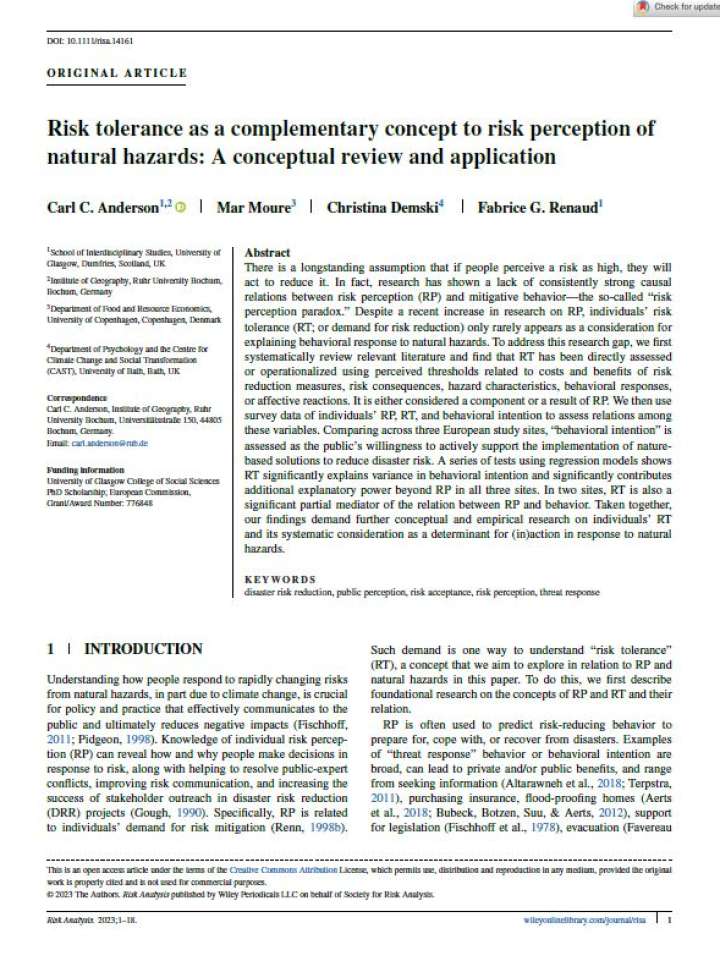Risk tolerance as a complementary concept to risk perception of natural hazards: A conceptual review and application
This study attempts to cover the research gap on individuals’ risk tolerance (RT; or demand for risk reduction) which only rarely appears as a consideration for explaining behavioral response to natural hazards. The researchers first systematically review relevant literature and find that RT has been directly assessed or operationalized using perceived thresholds related to costs and benefits of risk reduction measures, risk consequences, hazard characteristics, behavioral responses, or affective reactions. It is either considered a component or a result of RP.
They then use survey data of individuals’ RP, RT, and behavioral intention to assess relations among these variables. Comparing across three European study sites, “behavioral intention” is assessed as the public's willingness to actively support the implementation of nature-based solutions to reduce disaster risk. A series of tests using regression models shows RT significantly explains variance in behavioral intention and significantly contributes additional explanatory power beyond RP in all three sites. In two sites, RT is also a significant partial mediator of the relation between RP and behavior. Taken together, our findings demand further conceptual and empirical research on individuals’ RT and its systematic consideration as a determinant for (in)action in response to natural hazards.
Explore further
